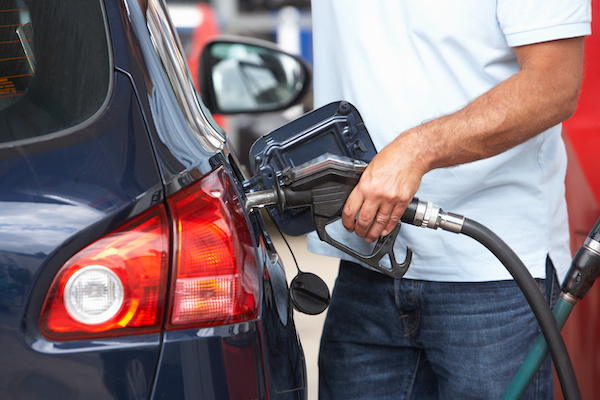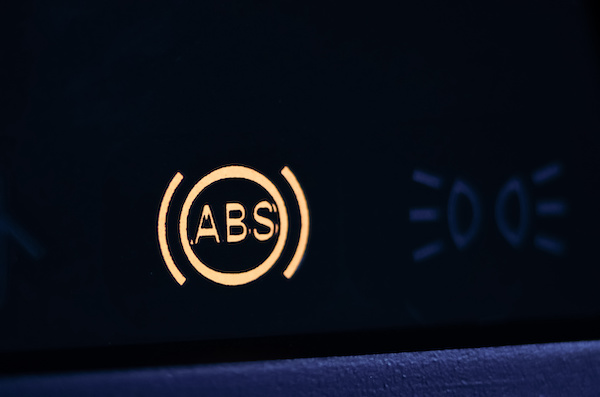Posted on 10/25/2022

If you own a gas-powered vehicle, you must know that gas has been costly this year. It has been a bigger priority now than ever to try to keep your vehicle as efficient as possible. If not for the sake of your wallet, then at least consider the positive impacts on the environment. We thought we’d share some of our favorite fuel-saving tips: Remember to Tighten Gas Caps – You might not think that this has any effect on your vehicle’s efficiency, but the gas lid is oh-so-important. If this cap is loose, damaged, or missing, it can cause a leak. Additionally, your check engine light may come on to alert you of the issue. Inflate Your Tires to Proper PSI – You might notice your tires’ psi dropping as the cooler weather causes the air in your tires to contract. It would help if you corrected your tire pressure because driving with underinflated tires puts your vehicle at risk of danger, leads to premature tire wear, and caus ... read more
Posted on 10/24/2022
Most Norfolk residents associate turbochargers and superchargers with hot rods and racing. However, the number of everyday cars and trucks coming to Norfolk from the factory with chargers is growing every year. Here's why. You need three elements for combustion: fuel, oxygen and ignition (spark plug in gasoline engines and compression in diesels). Superchargers and turbochargers deal with the oxygen part of the formula. In the normally aspirated engines Norfolk residents are familiar with, air is just drawn in from the outside by vacuum pressure created as the engine runs. Turbochargers and superchargers compress the air that goes into the engine's combustion chamber, forcing in more oxygen. This forced charge of air allows an engine to make more power than a similarly-sized, normally aspirated engine. So today we have small 4-cylinder turbocharged engines on Norfolk streets making more power than a full-sized V8 did 20 years ago – and getting far better fuel econo ... read more
Posted on 10/17/2022
You've just taken your vehicle in to figure out why the air conditioning isn't working. You remember a friend of yours just had to get a new evaporator, and your service advisor has told you it's the same part that needs to be replaced in your vehicle. But when you hear the estimated price for yours, it's different than your friend's. How can that be? The reason is that no two repairs—and no two vehicles—are alike. Let's take the evaporator for example. In one vehicle, the part may be fairly easy for the technician to access. In the other, it requires that the entire dashboard to be removed. Because of the way a particular unit is designed, the shop may also require special tools. The parts for your vehicle may cost more or less than for your friend's. Parts for newer vehicles and foreign nameplates can cost considerably more than parts for older or domestic vehicles. So now you can se ... read more
Posted on 10/12/2022
Ever wonder where they came up with the term "dashboard" for that part of your vehicle that sits behind the steering wheel? That name began back before cars were even invented. People used to travel by horse and buggy, and streets weren't as well built as they are today. On a muddy road (which was sometimes just a couple of ruts alongside a field), it wasn't unusual for those inside the buggy to have mud and stones "dashed" (knocked, thrown, or hurled) in their direction. So those who built carriages began installing a board to protect them. That became known as the dashboard. The word carriage got shortened to car, and the dashboard is sometimes shortened to dash. Today, the dashboard sits behind and below the windshield that houses various controls and instruments. In addition to the speedometer, tachometer, and gas gauge, there are warning lights you need to pay attention to on your dashboard and instrument panel. (You may ... read more
Posted on 10/4/2022
Question My engine never overheats. Why should I get a cooling system service? Answer That’s a good question to ask, because if you don’t have the full answer you may end up in trouble. It seems that, if your engine is running at the proper temperature then everything must be OK. But the fact is that engine overheating is the most common cause of mechanical failure. So how do you get from everything is just fine to suddenly overheating and potential engine damage? Truth is, it is not a sudden process, but it is an invisible one. Your engine coolant circulates through your engine where it absorbs heat and then flows through the radiator where it is cooled – and then back to the engine again. If the coolant can flow freely – and there are no leaks – then the coolant can do its job. This is the point where you must look deeper. The cooling system is a harsh environment: very hot, with several reactive materials l ... read more
Posted on 9/30/2022

Seeing any warning light flash on your car's dashboard is alarming, let alone the ABS light. Like many others, you should never ignore the ABS warning. Problems relating to the ABS can range from minor to serious, so it is important that you have your braking system taken care of so that you can return back to the road. What is ABS? When you hear an auto technician talking about the ABS, they are referring to your vehicle’s anti-lock braking system. Every vehicle has this technological system as an extra form of protection to prevent your wheels from locking up. When there is an issue with the ABS, a light will illuminate on your dashboard to warn you to check things out. There are a few reasons why this light comes on. What Can Cause the ABS Light to Come On? The ABS comprises various sensors that monitor how the brakes are functioning based on the speed that your wheels rotate. The ABS warning symbol can pop up for any of the following brake proble ... read more
Posted on 9/26/2022
Question:When should I replace my windshield wipers? Carmasters Automotive Answer: Well, most Norfolk drivers wait until they fail. The problem with that is that you find out they have failed when you actually need them most – a little too late. Wiper blades are really a safety system for Norfolk drivers. As you can imagine, 90% of our driving decisions are based on what we see. If you can't see well because your wipers can't clear your windshield, your ability to drive safely is significantly impaired. So the simple answer: of course, Norfolk drivers should change wipers if they don't work well. But replace them before they go bad so they are always ready when that storm hits. For some Norfolk drivers, once a year may be enough. For others – those who drive a lot, whose wipers are exposed to a lot of sun or use their wipers more – r ... read more
Posted on 9/21/2022
You probably have a cabinet in your kitchen filled with pots and pans. Your vehicle has one very important pan in it as well. It's the pan that holds oil for your engine called, naturally, an oil pan. The oil pan is a very important, though simple, component of your engine's lubrication system. The oil pan is attached to the bottom of the engine and holds the oil that will be circulated through parts of your engine to keep them lubricated, reducing friction, so everything works smoothly and prevents damage. It's important that the oil doesn't leak out, so there is a gasket between the oil pan and the engine block. The oil in your engine can get very hot while it’s running. The heat causes your oil pan and engine block to expand at different rates – cushioned by the gasket. Your oil pan can also get hit and damaged by debris kicked up from the road. Wear and tear, heat and time all take their toll, and it's possible for the ... read more
Posted on 9/12/2022
Some drivers don't worry at all about their vehicles and neglect taking them in for service. Here are six warning signs that it's time to head over to your NAPA AutoCare Center and get things checked out. Warning light is on. Vehicles have warning lights for everything from engine troubles to brakes to battery issues. They usually look like the system they're warning you about (a tire for under or over inflation, an engine for engine problems, etc.). It's telling you something. Have it checked out, especially a flashing Check Engine light. Shaking or vibrations. Your vehicle should go smoothly down the road, but if you feel shakes where there once were none, something's wrong. You might feel them in the steering wheel or through your seat. It could be a suspension, tire, or electrical problem (among other possibilities), so have it checked out, so you know what's going on. Burning smell or smoke ... read more
Posted on 9/6/2022
After many years and tens of thousands of miles, your suspension system components do wear out, but how long that takes depends a lot on how you drive. As you can imagine, if most of your driving is on smooth highways, your shock absorbers will last a lot longer than if you do most of your driving on bumpy roads or hauling heavy loads. In addition to just wearing out, suspension components can be damaged in an accident or by a hard impact – like a pothole, hitting a curb or a rock in the road. Because the life span of shocks can vary so widely, your vehicle manufacturer recommends periodic inspections. During an inspection, your service technician will check for worn, broken or missing parts. Signs that shocks or struts are wearing out: The tires may have a cupped wear pattern. This is from the shocks bouncing unevenly. You may notice a floaty or drifting sensation when cornering. If the front of your vehicle dives excessively when stopping ... read more